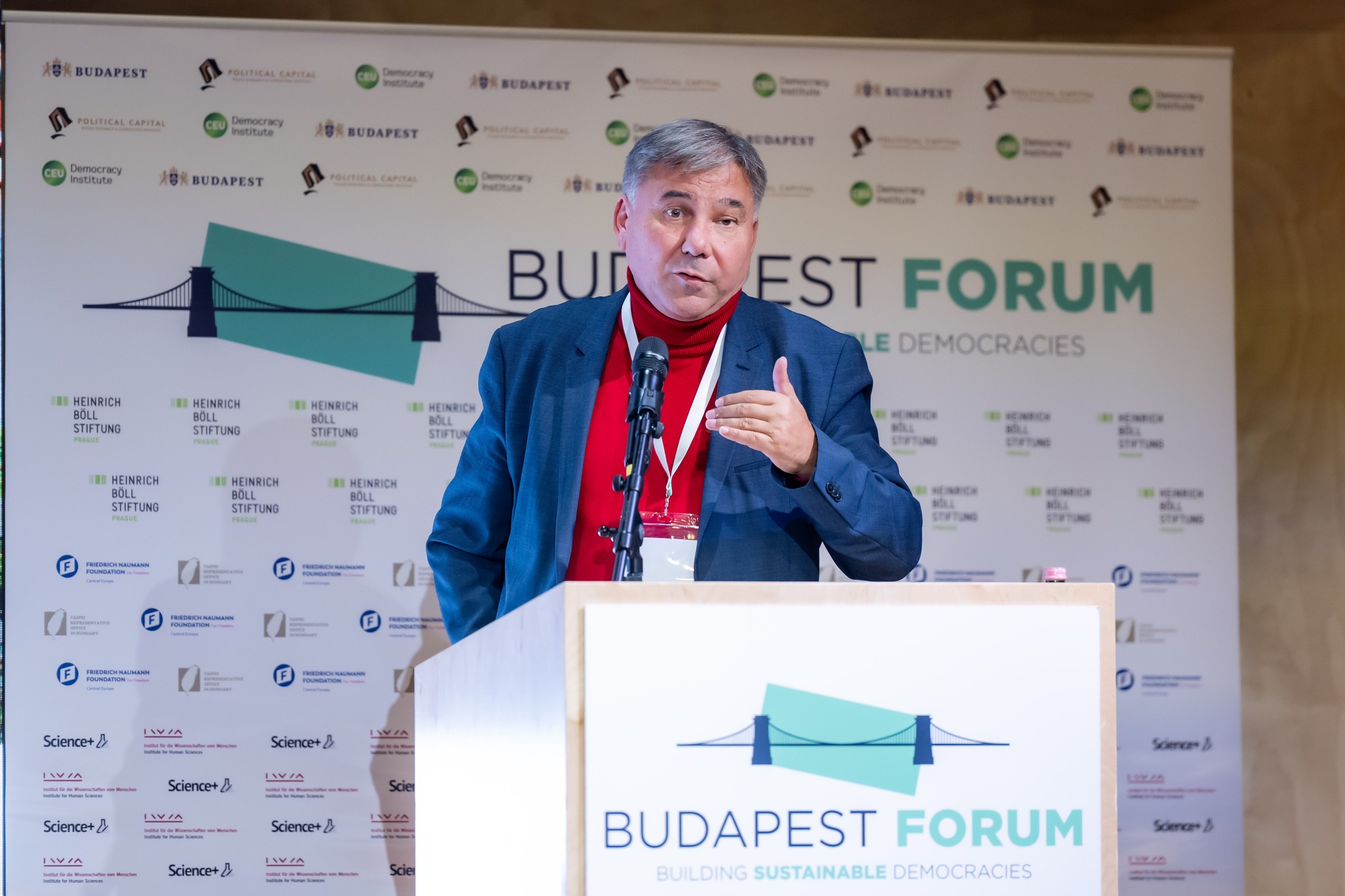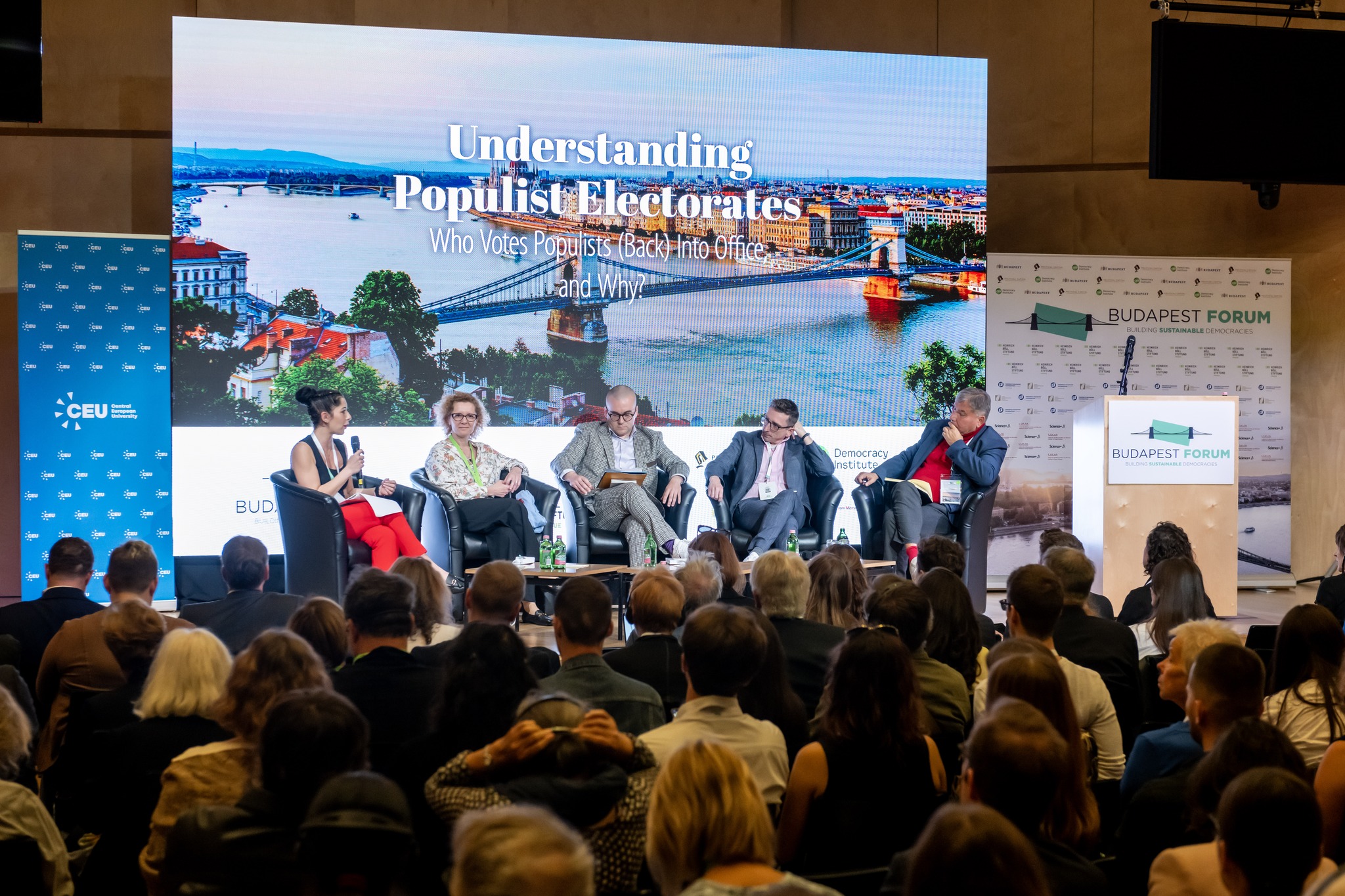Understanding populist electorates: Who votes populists (back) into office, and why?
2025-09-24
A summary of the keynote speech by Ivan Krastev at Budapest Forum 2025

Main takeaways
- Democracy today resembles monarchy at the end of the 19th century: once dominant, now increasingly contested by alternatives.
- The age of “poverty of political imagination” is over: liberal democracy is no longer seen as the inevitable model of modernity.
- Minority rights, once guaranteed under the U.S.-led liberal order, are now vulnerable in a multipolar world.
- Populism is not an accident or mere protest – it represents a structural transformation of democracy.
- Populist parties once labeled “anti-system” are now embedded in democratic systems and often re-elected.
- Framing politics as “democracy vs. populism” or “normal vs. abnormal” alienates citizens seeking change.
- Post-populist governments face a peculiar trilemma: they must (or should) govern quickly, effectively, and lawfully – but at most, only two of these can be achieved at the same time.
- This is why post-populist governments often appear weak, ineffective, and unable to deliver, fueling further disillusionment.
- Politics has intensified: urgency around climate change, migration, and identity undermines patience and adherence to democratic norms.
- Far-right voters long for a nostalgic “home,” while migrants also seek belonging – both driven by questions of identity.
- Liberal democracies must redefine the idea of “home” in inclusive ways if they are to survive internal hollowing-out.
Panel recap
Participants
Maciej Kisilowski – Associate Professor, Faculty Director, CEU
Ivan Krastev – Chairman, Centre for Liberal Strategies / Albert Hirschman Permanent Fellow at the Institute for Human Sciences in Vienna (IWM)
Raluca Nicoleta Radu – Professor, University of Bucharest
Gábor Scheiring – Assistant Professor, Comparative Politics at Georgetown University Qatar
Moderator: Ebru Ece Özbey – Co-Managing Editor, Review of Democracy

Main takeaways
- Populism dominates political discourse: seen either as democratic decay or as authentic representation of the majority.
- Predictions of populist decline have failed: they return to power or sustain themselves through re-election.
- Mainstream parties increasingly adopt populist rhetoric, blurring boundaries.
- Social media platforms (TikTok, WhatsApp) drive unexpected electoral surges, often exploited by foreign actors.
- Analysts who dismiss populism as mere “style” underestimate its coherence as revolutionary conservatism.
- Populism is rooted in a “triple devaluation:” economic devaluation (real income stagnation, job precarity), cultural devaluation (devaluation of skills and loss of ways of life), and political devaluation (loss of voice and elitism).
- Far-right populists succeed by uniting diverse disaffected groups into broad coalitions.
- Staying in power: populists use state and media capture, rule changes, and even vote manipulation (e.g., Romania) to entrench dominance.
- Digital news reliance (exacerbated by COVID) and AI-driven disinformation spread cross-border far-right narratives.
- Populists remain attractive not only through abuses of power but also via their hierarchical vision of order, privilege, and belonging.
- Migration debates reveal selective inclusion/exclusion logics that resonate even among migrant communities themselves.
- Upcoming crises – automation, climate change, AI-driven job losses – may strengthen populist hierarchical appeals.
- Revolutionary conservatives mirror Marxists in paranoia about liberal strength, fueling an authoritarian turn.
- Countering populism requires more than defending the status quo. Liberal democracy must reinvent itself through: (1) transformative policies and ideology (on the scale of the New Deal), (2) inclusive symbolic politics (a new narrative of “home” and belonging), (3) organizational roots (grassroots movements, unions, rural networks).
- Current liberal weakness: citizens feel their experience is irrelevant in debates on globalization, AI, and climate.
- Illiberals are masters of symbolic politics that pretends to provide answers. Their pretend-answers work because democratic elites have not even gotten to asking the right questions. But it is still not late to reimagine progressive politics. Instead of going back to liberal democracy as we knew it, we need democracy 2.0 that works for everyone.
Explore all the panel discussions from Budapest Forum 2025 here.
Copyright 2026. Political Capital Policy Research and Consulting Institute, all rights reserved.

